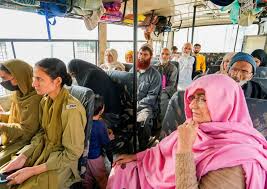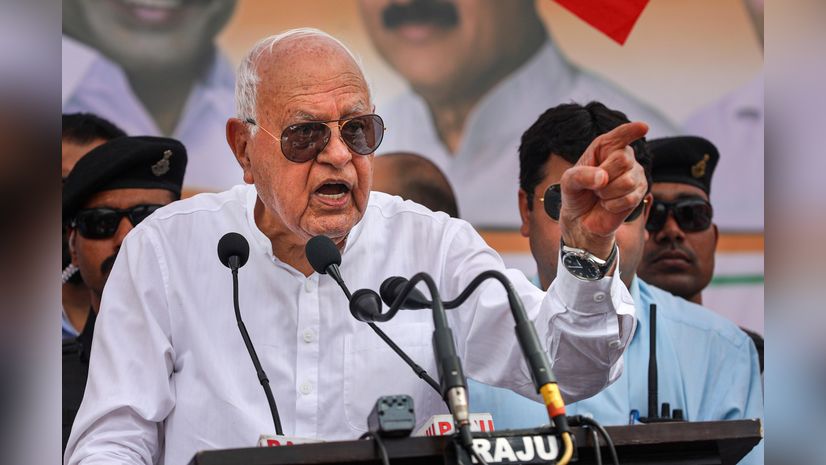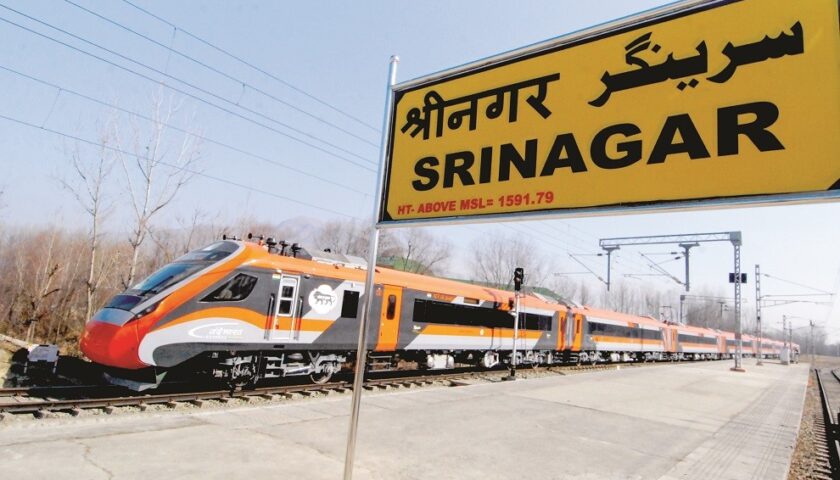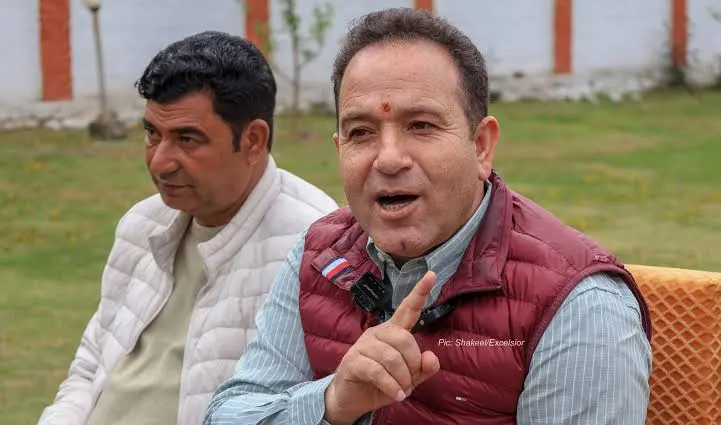Deportation Fear Looms Over Families in J&K Despite Temporary Relief from Court
Srinagar, 02 May 2025: Several families in Jammu and Kashmir are living under the shadow of potential deportation to Pakistan, despite having received temporary relief from the courts in their respective cases. These cases highlight the complex and sensitive issues surrounding nationality, family ties, and the legal status of individuals who have resided in the region for extended periods, particularly in the context of recent tensions between India and Pakistan.
The individuals facing deportation orders come from diverse backgrounds and circumstances, but their cases share a common thread: they involve individuals with connections to Pakistan who are now being challenged on their legal status in India. While the courts have provided some temporary respite, the long-term uncertainty continues to cause significant distress and anxiety for the affected families.
One such case involves Minal Khan, who married Munir Ahmed, a constable with the Central Reserve Police Force (CRPF) from the Jammu district, in March of this year. Their marriage took place through an online process. Minal’s case underscores the complexities arising from cross-border marriages and the challenges individuals face in establishing their legal status in a new country.
Another case involves Sariya Kauser, who has been married in the Poonch district since 1984 and has three children, all of whom are also married and presumably Indian citizens. Her case is particularly poignant, as she was among those who were taken to Amritsar, Punjab, for deportation. A last-minute court order prevented her deportation, highlighting the potential for abrupt and disruptive actions by authorities and the crucial role of judicial intervention in protecting individuals’ rights.
However, the most complex and perhaps surprising case is that of nine siblings, one of whom, Iftikhar Ali, is a constable in the Jammu and Kashmir Police. All nine siblings were born in Pakistan. Their parents were originally residents of Salwa village in the Mendhar area of the Poonch district but had moved to Pakistan in the mid-1960s. They returned to their native village in 1983, bringing their nine children – five daughters and four sons – with them.
Iftikhar Ali’s case is particularly noteworthy. He was initially dismissed from his position in the J&K Police years ago following a complaint alleging that he was a Pakistani national. However, a court order mandated his reinstatement, although he has reportedly never been promoted. This case reveals the intricacies of determining an individual’s nationality, especially when they were born in one country but have lived and worked in another for a significant portion of their lives.
All three families, including Minal Khan, Sariya Kauser, and the nine siblings, have received some form of temporary relief from the courts. However, this relief does not guarantee a permanent resolution to their legal status, and the threat of deportation continues to loom over them.
Intezar Kazmi, Sariya Kauser’s son, spoke to The Tribune, expressing his family’s ongoing anxiety. He noted that even though his mother was brought back to Poonch, the family fears that authorities might still deport her to Pakistan. He emphasized the family’s lack of connections in Pakistan, stating, “We are worried as to where will our mother go if she was sent to Pakistan. She has her entire family in India.” Kazmi also raised a pertinent question about the prolonged residence of his mother in India, asking, “How a person staying in India for decades was never asked to leave and suddenly becomes a ‘trouble for the country’?”
The case of Minal Khan was presented in the High Court of J&K and Ladakh by Advocate Ankur Sharma, who is also a spokesperson for the Bharatiya Janata Party (BJP). This representation drew criticism on social media, where some users pointed out the apparent contradiction between the BJP’s stance on deporting individuals from Pakistan and one of its members advocating for a Pakistani national to remain in India.
In response to the criticism, Advocate Sharma clarified that his legal argument was based on the existing government policy. He explained that Minal Khan had applied for a long-term visa after her visitor visa expired. She had remained in Jammu while awaiting the issuance of her long-term visa. However, deportation orders were issued against her because she did not possess either a valid visitor visa or a long-term visa at that specific time. Advocate Sharma emphasized that Minal Khan has now received temporary relief from the High Court.
These cases raise several critical issues:
- The Definition of Nationality: The cases highlight the complexities of determining an individual’s nationality, particularly in situations involving cross-border migration, marriages, and long-term residence.
- The Impact of Geopolitical Tensions: The cases also underscore how geopolitical tensions between India and Pakistan can affect the lives of individuals and families, even those who have lived in India for many years.
- The Role of the Judiciary: The courts play a crucial role in protecting the rights of individuals facing deportation, ensuring that their cases are adjudicated fairly and in accordance with the law.
- Humanitarian Concerns: The potential deportation of individuals with deep family ties and no connections in the country they may be sent to raises significant humanitarian concerns.
The situation remains fluid, and the long-term resolution of these cases will likely depend on a combination of legal processes, government policies, and the evolving relationship between India and Pakistan. The affected families continue to live with uncertainty, hoping for a resolution that will allow them to remain in their homes and with their families in India.




